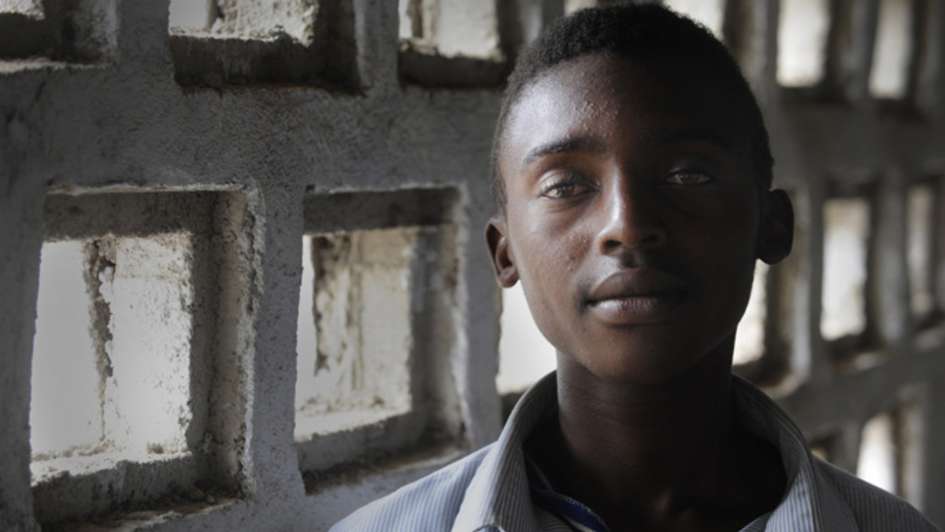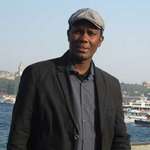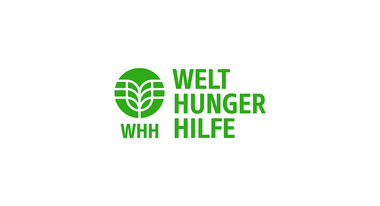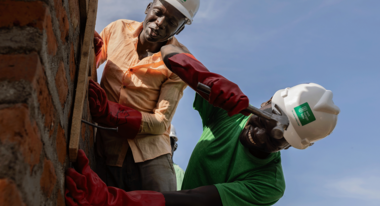Climate Induced Migration: COP 21 Has to Focus on African Youth
Migration is a recurring news topic – but still poorly addressed at "Climate Paris 2015". The COP 21 need to focus on African Youth.

In November and December 2015, „Climate Paris 2015“ or COP21 will be one of the biggest international conferences on Climate Change ever held in France. Over 20,000 delegations from 195 countries of the world are expected to attend that event. Normally, the conference should lead to the adoption of a first universal and binding agreement on climate. At the end of the meeting, the organizers and the Civil Society, but especially the people of the Intergovernmental Panel on Climate Change (IPCC), want to further press the alarm bell and work, in the future, to keep the global temperature below 2° C.
In 2014, the IPCC conclusions have amply demonstrated that the intensification of climate change is caused by human activity (overpopulation, excessive exploitation of natural resources, intensive migrations, etc.). Forecasts have confirmed that the warming is certain; which is quite alarming. Thus, the inaction scenario would be catastrophic if nobody acts, or if the Mankind try to handle the issue in a dispersed manner. Moreover, the 2014 report of the United Nations Development Program is more than clear: there are already warning that the slowdown of human development is partly related to climate change. But above all its adverse effects including the increased frequency of natural disasters.
The transformation of the economies and societies (especially those located in the Southern Hemisphere, the most vulnerable) into a low-carbon world nowadays is imperative; which is good for the future of humanity in question.
Migration is a recurring news topic – but still poorly addressed at COP
The facts remains that in this mega conference, migration is still the poor relation to the themes on which the „experts“ are called to address this relevant issue. However, migration is a recurring theme that comes almost every week in front of the international news. And this raises again the nagging question of the African youth who desperately seeks a way to exit the African continent and taking migration as an “opportunity“.
In a French documentary broadcast in France 2 Channel February 5th, 2005 („What is France doing in Africa?”), the Malian Human Right activist Aminata Traoré is categorical. For Traoré,
- High Income countries have no reason to promote and influence politics of migrations and development if they do not find any interest into them.
- She draws attention to the fact that if, for example, the European borders should be closed against „the misery of the world“ (referring to a famous pithy phrase attributed to Michel Rocard, the French Socialist Prime Minister between 1988 and 1991, saying: „France cannot accommodate all the misery of the world“), Europe should not be any more again replicating this same misery elsewhere. The activist attacks what she called the „double game“ of the West which wants an open Africa consumer of European products, but which should contain its inhabitants at home by supervising them with military bases . The French, for example, are present with military bases in Senegal, Gabon, Côte d’Ivoire and Djibouti. Americans have also several troops or military official trainers in Africa.
- For her the rich and high income countries are mistaken when talking to the current African generation, to the new challenges and when referring to the actual period! According to her, Africans are in fact victims of alienation, so that the civilizing mission continues and is perpetuated through the channels of migration policies and cooperation.
Africa’s young people will mark a historic turning point
Africa, as some people predicted, is the continent of the “future”, with strategic resources, large under-explored areas, plenty of energy sources, but especially with the youngest population on earth. Unlike the neo-Malthusian discourse that continues to dehumanize the continent, African youth today represent a huge potential with which the African continent will mark a historic turning point. The young people that currently Africa is carrying in his veins is actually a scarce resource. They represent the potential electors; they protest in the streets and defeat dictators who are prone to abuse power.
That youth represents the strong arms that nowadays nourish millions of families struggling in harsh conditions. This youth will build, in a near future, the economic relationships that are now impeding Africa to take off and beyond it will work to build an independent power. This time of truth is in fact a political and socio-cultural vacuum and that will experience a time of crisis.
But after the rain will come the good weather. The same African youth is trying to build a dynamic network of relationships that will connect into formidable business efficiency that will forever mark the World. When one gives with a proven paternalism and disregard, he or she must actually expect to receive back the same disregard and/or to reach a situation into those that were receiving assistance now come to count on themselves.
Reality is much more complex than it appears on paper
According to Horst Köhler, the former President of Germany:
"African reality is much more complex than it appears on paper. (…) and its transformation is full of ambivalence. Speaking of Africa means acknowledging that Africa is changing much more rapidly than our image of it."
This late „awareness“ is however to acknowledge when it comes out of the mouth of a well-known Politician who was/is “very close to Africa” and who led Europe’s biggest economic power after the Cold War. To reckon that Africa, which represents a complex social reality, was treated as an object in the International cooperation/migration negotiations is thus a disclosure of a big stature.
Activation of the hegemonic culture of assistance molded in a pure Universalist discourse development has led to an expropriation of the ideals of the old realpolitik that long prevailed. In the sense that the canons of policies are asserted, the current migration issues and development assistance seem to be ideal for completing the unfinished expansion of the decolonization project. The mental „coloniality“ that still undermine the international migration policy issue, at international level, is expected to continue and could prevail for a long period as any attempt to count the dominant thoughts are marginalized.
Experts should bring African human mobility on the climate negotiations agenda
With the “Paris COP21”, experts on human mobility (IOM, UNFCCC, UNFPDA, UNHCR, UNPD, engaged intellectuals, etc.) should bring actively African human mobility on the climate negotiations agenda. Opinions and views should be positioned on the management of climate induced migration, but also social and cultural aspects should be tackled. Particularly on policy and capacity development. Research and operationalization of migration and climate activities should open access to climate funding mechanisms. That could actively involve stakeholders and migrant organizations themselves. The integration of human mobility in climate change negotiations should be real through the National Adaptation Plans (NAPs), but also reinforce what have been already implemented such as the NWP (Nairobi Work Program) which intends to focus on capacity building and vulnerabilities. In resume, a clear increase in awareness, evidence and mentions of the crucial issue of African migration should be stressed and recognized.






